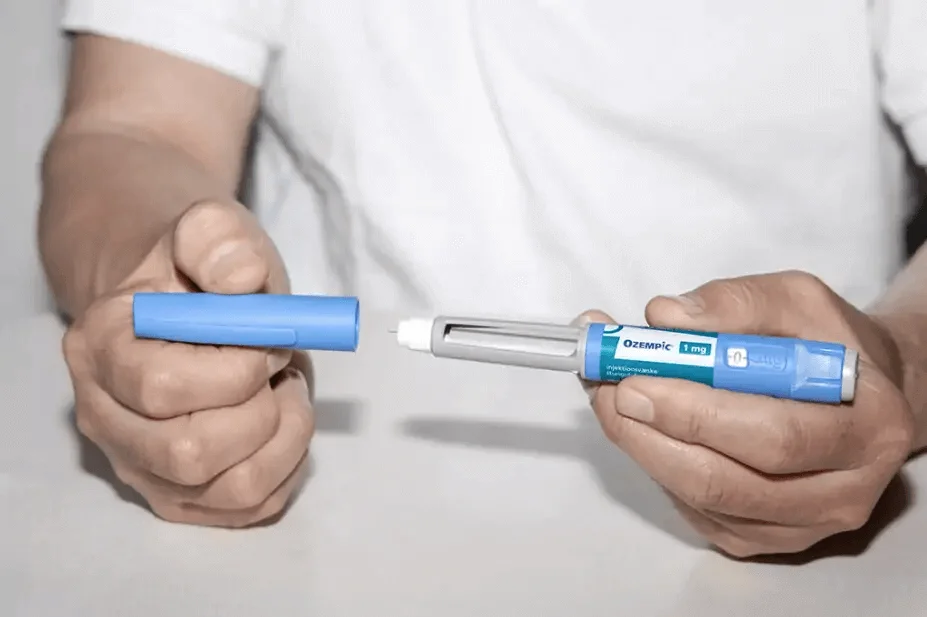Key Takeaways
-
Liposuction is a major surgical procedure used to remove fat deposits that are resistant to diet and exercise. It’s not a quick fix for weight loss or body image issues!
-
When patients develop unrealistic expectations about what liposuction can do for them, they are bound to be disappointed. It does not lead to better self-esteem or body image.
-
Body image issues are more than skin deep Body image issues are not just an aesthetic concern.
-
Open and honest conversations with board-certified surgeons are key. They help you clarify your goals and make sure you understand the risks and likely results.
-
Holistic approaches such as these are often the most impactful in fostering positive body image and overall mental well-being. These range from therapy to self-compassion to community support!
-
Shift the emphasis to overall health and positive lifestyle changes for greater long-term satisfaction. And it’s a lot better than just hoping people turn to cosmetic procedures!
Myth #4—Liposuction to improve body image is the easy way out. This myth is pervasive in the United States. Liposuction does remove fat from the targeted areas and can reshape those areas.
However, it doesn’t get at the core issue of why people are unhappy with their bodies in the first place. It’s no wonder that many people in Los Angeles and around the country who pursue liposuction expect a complete confidence makeover.
According to experts, true body image goes beyond appearance to involve attitude and self-acceptance. While cosmetic surgery can accomplish physical goals, it very rarely addresses the emotional or mental issues underneath.
To really understand what liposuction can and can’t do, you’ll need to know the facts. Equally important is to promote positive attitudes toward body image. The following sections elaborate on each of these arguments.
What Is Liposuction Really?
Specifically, liposuction is a unique surgical technique primarily designed for removing localized deposits of fat, rather than losing weight. In Los Angeles and cities like it across the country, Americans see this procedure as the answer. It’s the perfect way to attack those hard-to-reach spots that don’t respond to your gym efforts and new eating habits.
It’s not for everyone. That’s why most surgeons don’t advocate it for those who are not already near their target weight. They do not consider it an appropriate treatment for patients with BMI≥40. Because fat deposits differently for everyone, each liposuction treatment plan is customized to you. Others just need to lose a few inches from their waist—2.5, in some instances. Some others will focus on their thighs, arms or even under their chin.
Defining the Surgical Procedure
A usual appointment begins with marking the areas to be treated. You receive anesthesia and a small tube inserted under the skin to break up and remove fat. New techniques—such as tumescent, ultrasound, or laser-assisted liposuction—allow practitioners to operate more safely and with less recovery time.
Each technique fulfills a specific purpose. For example, tumescent uses a saline solution and laser literally melts fat making it easier to remove.
Understanding Its Intended Purpose
Ultimately, the purpose of liposuction is to sculpt and contour areas of concern—not to lose a significant amount of weight. Liposuction can treat multiple areas simultaneously, allowing you to achieve better overall body shape symmetry.
While it may not eliminate cellulite or scarring, it can improve clothing fit and enhance self-esteem in more individualized ways.
Liposuction Is Not Weight Loss
This is not a substitute for traditional weight loss methods. In fact, the true results of liposuction procedures don’t even appear for several months—after residual swelling subsides. The goal here is fat reduction from areas food and exercise couldn’t improve—not actual weight loss.
Liposuction: Reality vs. Body Image Myth
Liposuction is the second-most searched for cosmetic procedure in the US. This is certainly the case in cities such as Los Angeles, where the feeling of image being paramount is hard to escape. Too often, individuals hear anecdotes or view sensationalized before-and-after images.
Then they go on to perpetuate the myth that liposuction is the solution for all who are dissatisfied with their body. Here’s what you need to know about liposuction and the impact on body image. This section unpacks the body image myth. It breaks down the true purpose of the procedure, why it’s impossible for it to change how people feel about their bodies and what life looks like after surgery.
1. Myth: One Surgery, Perfect Body Image
The belief that one surgery will achieve a perfect body image is the most pervasive myth of them all. Many think that liposuction will give them a “perfect” look, as if a procedure can erase years of self-doubt or dissatisfaction. Often, social media, reality TV, and friends or family can contribute to setting the wrong expectations.
They highlight amazing results while failing to explain the recovery process, what surgery can and cannot do, and what a patient had to begin with. Although liposuction isn’t a weight loss treatment, it can improve the contours and shape of your body. It doesn’t promise a complete metamorphosis or a freshly minted self-esteem.
Reality—Patients may think after one surgery they’ll be granted a perfect body. They build this expectation off of the transformations they see in magazines or Instagram. As we know, this simply isn’t attainable. Remember, your body needs time to heal and the swelling can take several months to completely go away.
It takes time for swelling to go down, and the final shape may not be apparent for several months. After everything heals, the difference tends to be more understated than a showstopping transformation. Anyone interested in liposuction needs to understand that it’s not going to make you happy about the way you look. It doesn’t address the underlying body image issues.
2. Reality: Targeting Stubborn Fat Pockets
One of the most common misconceptions surrounding liposuction is that the procedure serves as an effective weight loss solution. While it can target specific body areas like the abdomen, thighs, and arms, it primarily focuses on fat reduction rather than overall weight loss. Many individuals, both men and women, are opting for liposuction procedures in Los Angeles to improve their body contours and eliminate stubborn fat deposits, such as love handles or inner thighs.
It is essential for liposuction patients to understand that this procedure is not a magical cure-all; it does not enhance muscle tone or skin quality, nor does it eliminate stretch marks or cellulite. During a liposuction consultation, surgeons explain that only a limited amount of fat can be safely removed in one session, emphasizing the importance of realistic expectations.
For those seeking significant weight loss or a complete body transformation, alternative approaches, including diet, exercise, or other surgical treatments, may be necessary. Therefore, while liposuction can provide successful aesthetic results, it should be viewed as a part of a broader weight management strategy rather than a standalone solution.
3. Why Lipo Can’t Fix Self-Esteem
Liposuction can change your body but not your mind. A person can go from worryingly obese to pleasantly plump. Even those changes don’t consistently result in better self-esteem. Self-esteem is affected by so much—our life experiences, our relationships, our mental health, and beyond.
Surgery can’t touch those factors. This is why mental health professionals frequently suggest that anyone considering cosmetic surgery speak with a counselor or therapist both before and after the procedure. It’s a crucial part of developing realistic expectations and fostering feelings of self-worth that are not solely based on appearance.
Those who shift their emphasis from appearance to what they offer the world are ultimately much happier. Even if they decide against having surgery, this is still true.
4. The Limits of Physical Change
While physical changes can be impactful, they don’t answer it all. Even for those who do experience a noticeable difference in their body after liposuction, many report feeling dissatisfied when they look in the mirror. Others may experience an initial increase in self-esteem, only to have their previous insecurities return.
Here’s why it’s important. This mental and emotional state is just as important, if not more so, than the physical change itself. In Los Angeles and across the world, healthcare providers are beginning to speak out more loudly about this link.
They inspire patients to think about why they want the procedure. They call for them to work through any self-image issues prior to the procedure. This realistic, balanced approach saves people the heartbreak of disappointment.
5. Research: Psychological Impact Post-Surgery
Studies have found inconclusive results in regard to the emotional and mental effects that liposuction has on patients. About one-third report feeling better about their bodies, and this is likely if their expectations were realistic and their goals specific. Some people feel disappointed if the results are not as extreme as desired.
Soon after the procedure, many people begin experiencing regret with unrealistic hopes turning into anxiety or even depression. Studies have found that the increase in self-esteem doesn’t last, particularly if underlying issues were left unexamined.
This is why clinics in cities such as Los Angeles frequently require mental health screening during the pre-surgery process.
6. Hearing Patient Experiences Directly
Patient perspectives illustrate both the success and failure that happens behind closed doors. Many report feeling more comfortable in their skin or resuming interests they previously shunned. Some explain that even though they appreciated the change, they still had a difficult experience with body image.
One very happy Santa Monica lady told how pleased she was with her now trimmer waist. She spoke to the things she still wanted to fix most. A Pasadena man reported that the liposuction he had improved the fit of his clothes but did nothing to alleviate his poor self-image.
These experiences really fill in the picture and give you a sense of what to really expect.
7. When Expectations Don’t Match Results
Occasionally, individuals have unrealistic expectations for a liposuction procedure, leading to dissatisfaction. The top complaints are failure to achieve sufficient results, scarring, asymmetry, or delayed recovery. Many patients are caught off guard by the extended recovery period—weeks just to heal, months to see the final outcome.
When results don’t meet expectations, individuals report feeling more negatively about their bodies than they did prior to getting the procedure. The best surgeons will spend time discussing with patients what is realistic. True patient accounts are critical to this discussion.
Why This Body Image Myth Persists
It’s not hard to find the genesis for this myth, the notion that liposuction is a cure all for body image woes. It continues to persist because of the reach of American culture and social media. Advertising has a huge impact on how individuals learn to fear their bodies and dream of surgery.
These liposuction myths blur the line between reality and fantasy, confusing people so they make poor decisions.
Media Portrayals and Advertising Influence
These portrayals in media and advertising reinforce the idea that only bodies with flat stomachs and smooth skin are acceptable. This produces the misleading effect that everyone can look like that with the right treatment.
It gets marketed as a convenient solution that will have you looking flawless in no time. Instead, most ads gloss over actual recovery time and potential risks and jump straight to flashy “before and after” images.
These accounts further the myth that liposuction is a long-term weight loss answer or cellulite treatment. In truth, it’s meant to influence targeted sectors, not cure every ill.
America’s Quick-Fix Culture Impact
We have a huge quick-fix culture in the U.S.—in the way we think about everything from health to body image. They’d like to think one simple procedure can turn around decades of unhappiness.
This desire for rapid transformation feeds the misconception that liposuction is a permanent solution all by itself. It glosses over the importance of healthy lifestyle and preventive care.
Social Media’s Role Today
Social media introduces relentless waves of “before and after” photos and diet fad influencer promotions. These posts further confuse the line between legitimate results and filtered images.
One, they advance the idea that liposuction can magically achieve perfection overnight. Trends can perpetuate dangerous and confusing myths, doubling down on misconceptions about who is an appropriate candidate for liposuction and what the procedure is capable of.
Misunderstanding Surgical Capabilities
Surgery is often misunderstood. Many still believe liposuction surgery is a weight loss procedure, or wrongly assume it’s a surgery men wouldn’t seek out.
Others are under the impression that they’ll see results overnight, unaware that it can take several weeks to heal. Dangerous misconceptions about fat, including how it travels and acts in the body, complicate the ability to establish meaningful expectations for surgery.
Understand Body Image Psychology Deeply
Body image is the intricate interplay of emotional, mental, and social influences. It’s much deeper than what one sees in the mirror. Like so many Angelenos and people across America who are bombarded by unrealistic media images and harmful beauty ideals, Ashley was affected by the pressure.
This pressure heavily influences how they perceive their bodies. This section digs into what causes us to develop negative body image. They are more than cosmetic; they include how individuals view and feel about their bodies.
Body Image: More Than Skin Deep
Body image is connected to one’s mental, emotional and spiritual well-being. It’s more than simply weight or shape. Individuals increasingly associate their value with their appearance, a dangerous belief that can take root from a young age.
Society, social media, and even our friends put unrealistic standards to what the “perfect” body should look like. As research has found, negative self-talk about one’s body—what researchers have dubbed “fat talking”—only stokes the fire of body dissatisfaction. This can occur at any age.
Consider, for instance, the research showing that body image and eating issues are prevalent among middle-aged women as well.
Identifying Underlying Issues First
Considering that body image issues frequently lead to more serious mental health issues, instruments such as the Eating Disorder Inventory can aid in identifying these patterns. Before resorting to dangerous surgeries, it is worth exploring what is causing these desires.
Self-reflection, therapy, or counseling can aid individuals in identifying if their concerns are based in an underlying issue.
The Mind-Body Connection Matters
Mental health and body image are cyclical. When people are depressed, they tend to view their body more critically. Positive health habits, such as regular exercise, improve mood, as well as body satisfaction.
To reap optimal benefits, experts recommend a minimum of 150 minutes of moderate-intensity aerobic activity per week.

How Negative Self-Talk Works
Negative self-talk influences one’s body image. It can begin with just one negative thought and snowball from there. Simple actions, such as writing down negative self-talk and substituting it with more positive affirmations, are effective in raising self-esteem.
Mindfulness practices and support groups are helpful too.
Setting Realistic Liposuction Expectations
Liposuction is commonly presented as a solution to body image concerns, but the truth is far more complicated. You’ll achieve the best results possible when you have an understanding of what liposuction is and what it isn’t. It is not intended for weight loss, and the average person loses only a few pounds.
Instead, it targets areas—such as the abdomen or thighs—where stubborn fat is resistant to diet and exercise. First, results are not immediate. Swelling and bruising are natural after a procedure. It may take weeks until you return to your previous activities and months until swelling is completely resolved.
Consult Thoroughly With Your Surgeon
It’s a good idea to consult with your surgeon multiple times. Your ideal surgeon will walk you through the entire procedure — from pre-op to post-op care. Inquire about the nature of the surgery, the healing process and the potential side effects.
Swelling, bruising, and 1-3 weeks of downtime are expected during recovery. Medical professionals, like patient surgeons Los Angeles trusts, will tell you that results come in gradually, and expecting instant impact can be frustrating.
Discuss Your Body Goals Honestly
Discuss your concerns and goals with your doctor. In the right hands, a trusted provider will guide you in aligning your goals with what is realistically achievable. While liposuction can effectively remove stubborn fat deposits, it doesn’t improve skin texture or eliminate the appearance of cellulite.
This frank dialogue allows both you and your doctor to establish realistic goals and manage expectations.
Know Potential Risks And Outcomes
As with all surgery, liposuction comes with risks. Understand the potential risks and outcomes. Liposuction can result in infection, uneven or bumpy appearance or longer healing time.
Most patients return to normal activities within one to two weeks; however, each person is unique. Physicians typically adhere to a guideline of removing no more than five liters of fat at a time. This technique greatly minimizes the chance of complications occurring.
Visualize Achievable Physical Changes
Prepare yourself for slow, steady changes—not a brand-new body overnight. While liposuction procedures can help you achieve and maintain a more finely tuned shape, it is essential to understand that healthy eating and exercise play an important role in maintaining successful liposuction results.
Beyond Surgery: Holistic Body Image Work
People seem to think surgery, such as liposuction, is just going to magically make somebody’s body different. Research shows that body image issues go beyond physical appearance. Those who seek liposuction tend to have a high need for thinness and experience more eating disorders.
These patterns suggest that body dissatisfaction is related to issues beyond appearance. Beyond the Body improving body image requires addressing mental, emotional, and social well-being.
Explore Therapy And Counseling Options
Therapy and counseling are important tools to help individuals understand and heal their relationship with their body. For instance, cognitive behavioral therapy (CBT) is an effective treatment for developing self-acceptance and challenging negative thoughts surrounding one’s body.
Self-esteem, anxiety, and eating are all intertwined, and those struggling often have real breakthroughs when they speak with skilled professionals. Research illustrates that when we repair these root issues, we create meaningful, long-term transformations—not merely temporary solutions.
Practice Mindful Self-Compassion Daily
Gentle self-talk practices and mindful breathing exercises are everyday forms of self-compassion that can significantly change how a person feels about themselves. Mindfulness cultivates the ability to catch cruel self-criticism, and self-compassion allows for kinder responses.
Over time, this will decrease the desire to compare and allows you to cultivate a more consistent self-image.
Focus On Health, Not Just Appearance
Changing the conversation from appearance to health would have a profound impact. Even simple habits, such as eating balanced meals, getting consistent sleep, and managing stress, can help lift the mood and increase self-confidence.
For millions across Los Angeles and other major U.S. Cities, this health-first mentality promotes the overall health and wellness of their communities.
Build A Supportive Community Around You
Finding communities that promote positive body image messages is key, especially for those considering liposuction procedures. Whether through social media or in-person gatherings, having friends and peers who support you can help you feel appreciated for more than your appearance.
Find Joy In Body Movement
Discovering joy in movement—whether through dance, hiking, yoga, or other activities—can increase happiness and self-worth, fostering a positive body image and supporting effective weight loss solutions like liposuction procedures.
My Perspective: Surgery And Self-Worth
Discussing the role of liposuction procedures in our conversations about self-worth requires a nuanced understanding of complex realities, emotions, and agency. In fact, studies have found that cosmetic surgery, such as liposuction, improves quality of life and body image for many people. Angelenos and other big city denizens across the country dream of these kinds of changes. They want to feel an increase in their self-worth.
For many, however, this does not hold true. Research indicates that nearly 60 percent of women are less dissatisfied with their body post-liposuction. Yet for about one in five, much of that stress over appearance remains, even after their liposuction consultation. This suggests that results are not uniform across all liposuction patients.
Body image and self-image are inextricably linked to self-esteem. When folks are pleased with their appearance, their self-confidence tends to soar as well. Usually, no more than a third of patients report that their anxiety or depressive feelings improved after surgery. It’s not always the magic fix.
This can include surgical interventions—liposuction, for example, produces tangible, immediate changes in body contours. What the majority of us feel is the greatest change in identity post-op. This shift typically happens in the first three to six months, with people’s self-esteem scores sometimes increasing by three, four, or five points.
The liposuction recovery period can be difficult, requiring at least a few weeks, if not months, of healing time. Patients often need assistance from friends or family and should be well-informed about the recovery process.
It is important to reflect on your reasons for seeking surgery and your expectations. It is true that deep, lasting change in one’s self-worth requires more than a new appearance, and understanding this can help in navigating the liposuction journey.
Conclusion
Liposuction will never fix the body image issues that exist within ourselves. Many in LA hope a quick fix will solve deep worries, but real change asks for more than a trip to the doctor. The reason old myths are so hard to get rid of is because they’re heavily promoted by advertising and popular culture. In reality, being comfortable in your own skin is more an endeavor than a one-day procedure. Support, open communications, and achievable day-to-day victories go further than any device found in a doctor’s office. Body image takes time and healing, and often requires the assistance of pros who understand both the beautiful mind and body. Yet while liposuction may address our shape, it can never address the stories we tell ourselves about our shape. If you are ready to take actions, big or small, to make a real change, contact us today. Let’s discuss effective measures to build true confidence.
Frequently Asked Questions
Does liposuction fix all body image issues?
False, liposuction isn’t a weight loss solution; rather, it targets excess fat deposits in specific body areas. It is essential to understand that liposuction procedures do not address emotional or psychological body image issues.
Is liposuction a weight-loss solution?
Is liposuction a weight loss solution? While it effectively targets stubborn fat deposits for body contouring, it’s not intended for significant weight loss.
Will my self-esteem improve after liposuction?
Losing weight might give you a new jump in confidence, but self-esteem will always come from you—not liposuction. Ultimately, traditional liposuction procedures alone cannot provide a permanent emotional solution.
Can body image issues return after liposuction?
Yes, body image issues can resurface if rooted in self-perception. Ensuring mental health support during the liposuction journey, before and after surgery, is crucial for long-term body confidence.
Is everyone a good candidate for liposuction?
False—healthy adults with localized fat deposits are the ideal liposuction candidates for effective fat reduction procedures, not for those with serious health issues or poor body image goals.
How long do liposuction results last?
What’s more, liposuction procedures can yield permanent results for years—decades, even—if you adopt and stick to a healthy lifestyle, as successful liposuction results depend on maintaining weight management.
What should I do if I struggle with body image after surgery?
Look for mental health professionals, body positivity support groups, or counselors in the Los Angeles area, as holistic care often leads to improved body satisfaction and successful procedures.





